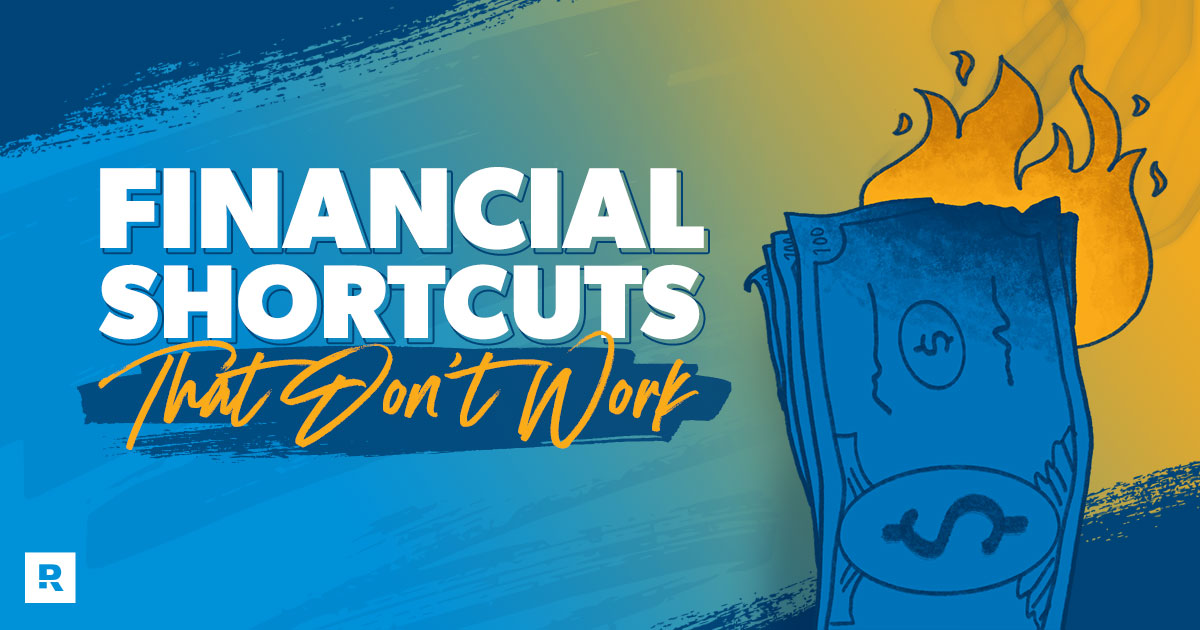
Many people can think of little ways to "beat the system."
It might be a refund, a tax deduction or some other little loophole that you think you can exploit for some money. The problem is that you're beating the system with a stick. If it ever decides to beat you back, it will feel like a sledgehammer.
We've got some examples of why it's not good when you try to use shortcuts to get ahead with money.
Getting rebates on credit cards
Seriously? If you use credit cards for the "rewards," you're risking double-digit interest rates, fees, collectors and damaged credit to get back 2% on your purchases. If you spend $1,000 a month, you'll get back 20 bucks. Taking all those chances for a return that won't even pay for a Saturday night dinner is stupid.
Keeping a mortgage for the tax deduction
The big reason this is dangerous is because it involves debt (and thus risk) on your home. You'll also be paying lots of money to the bank to avoid sending a lot less money to the government. And if you lose your job and can't make your monthly payment, then be prepared for the worst.
Fleecing a car
A lot of talk about car leases centers around how you can deduct the mileage, then turn the car back in. Since the vehicle goes down in value, it's smart to lease, right? WRONG! Leasing is the most expensive way to operate an automobile.
Borrowing from a 401(k) loan and paying yourself interest
The problem with a 401(k) loan is that you've unplugged an investment earning 12% so you can pay yourself the 6% interest rate. Right there, you are losing half your progress. On top of that, if you leave your job or get fired, that loan is due in full within 60 days. If you don't pay, you'll get taken to the cleaners with taxes and fees.
When you try to beat the system, you assume much more in risk than you get in reward. And if the danger of risk hits you, it will wipe out any progress you made—and then some.
Be slow and steady when building your wealth. Your odds of doing it that way are much better.
Start building your wealth with a plan that actually works. Find out how with Financial Peace University.


